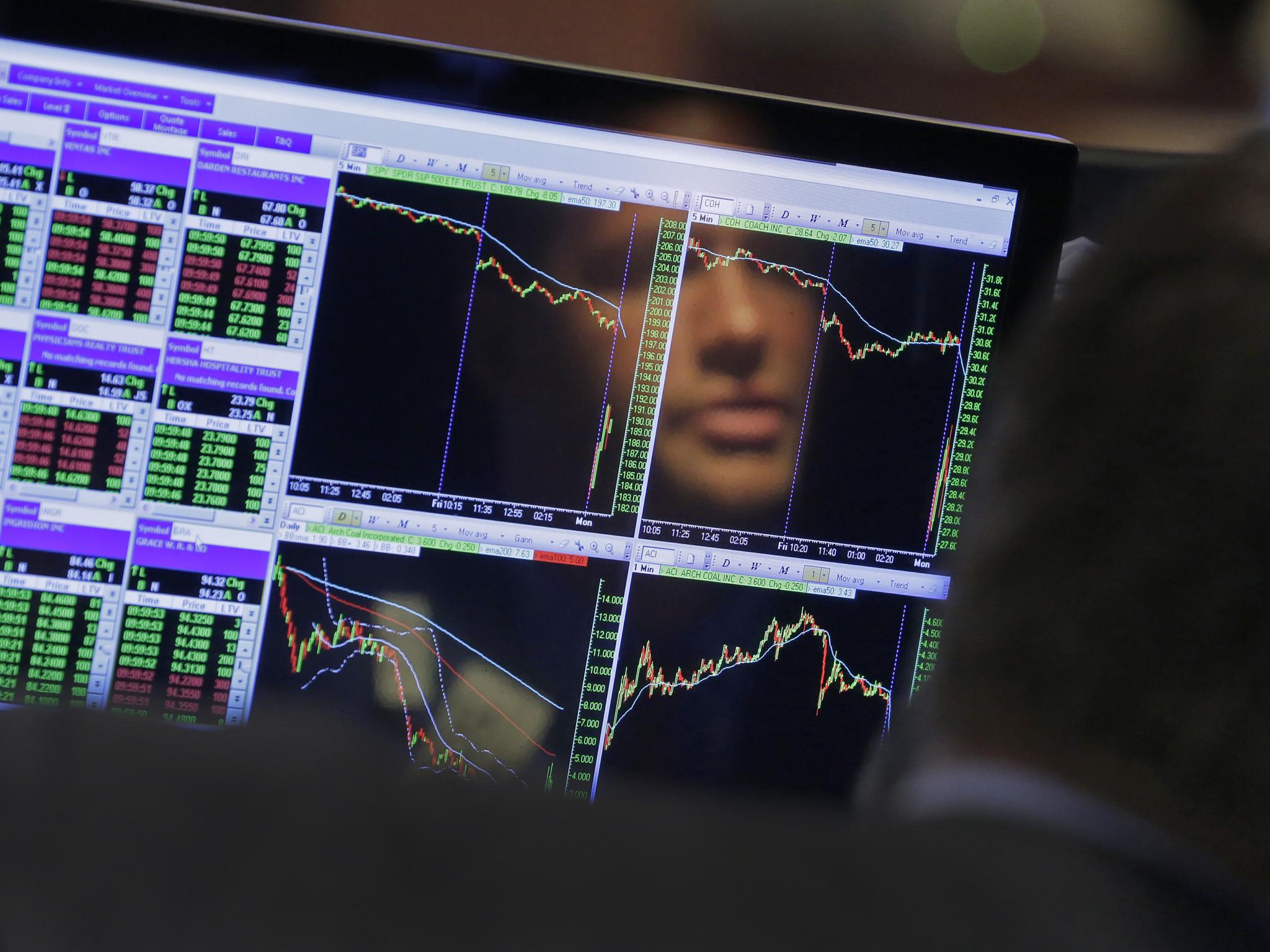Why are the pound and the stock market heading in different directions?
Part of the answer is that the decent growth of the FTSE 100 is itself a simple currency effect. But this isn’t the whole story

The pound slumped again against the dollar and the euro today, but the FTSE 100 index touched a record high. What is going on? Why is there a divergence in financial markets? And what does it all mean for the UK economy?
What’s happening to the pound?
It’s heading south. Against the dollar the UK currency has slipped to $1.22, down 1.25 per cent on the day and taking the decline since the 23 June Brexit vote to almost 18 per cent. It is a similar story against the euro. The pound fell 0.6 per cent yesterday to €1.10. Since 23 June it’s down 16 per cent against the single currency.
And the stock market? Is that down too?
It’s a rather different story here. The FTSE 100 Index of blue-chip shares closed down slightly today but it’s up 11.4 per cent since the 23 June and in trading it even touched an all-time high of 7129.83. The FTSE 250 Index (made up of the next 250 largest companies listed in the UK) is also up since the referendum, by about 4 per cent.
So why are they going in different directions? Do stock market investors think differently from currency traders?
Part of the answer is that the decent growth of the FTSE 100 is itself a simple currency effect. Many of the 100 companies in the index are multinational miners, oil producers and global banks that do a large amount of business outside the UK. Often they do relatively little business here in Britain at all.
A large chunk of their revenues and profits are from overseas – 77 per cent of the total according to some estimates.
Yet they often report in pound sterling. So when the value of the pound goes down, the value of their profits (reported in pounds) automatically rises. Since stocks tend to be valued by analysts and investors based on the value of their future profits, this fall in the pound should automatically boost the sterling share prices. And this does seem to be what is happening.
But is that really all that is going on?
Not entirely. Even allowing for the currency effect it does appear that the stock market has held up better than the currency. FTSE 250 companies are much more UK-focused and even they have not done badly since the vote.
It is notable that the Treasury’s pre-referendum report on the short-term impact of a Brexit vote forecast a 12 per cent fall in sterling, which has been pretty accurate. But the Treasury also forecast a fall in equity prices as investors demanded a higher “risk premium” for putting their money in UK shocks. There has been little sign of this so far. It does appear that, to some extent, investors are less pessimistic than currency traders.
So will there be a convergence?
The depreciation of sterling looks pretty unlikely to be reversed. As for stock price gains, they might run out of steam if global growth disappoints. The values of UK-facing listed companies could also lurch lower if consumer confidence dries up. There has been little sign of that since the Brexit vote – but the fall in the pound will increase inflationary pressure, squeezing real disposable incomes and meaning Britons have less to spend.
Subscribe to Independent Premium to bookmark this article
Want to bookmark your favourite articles and stories to read or reference later? Start your Independent Premium subscription today.

Join our commenting forum
Join thought-provoking conversations, follow other Independent readers and see their replies